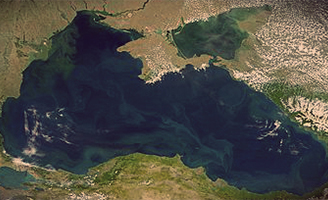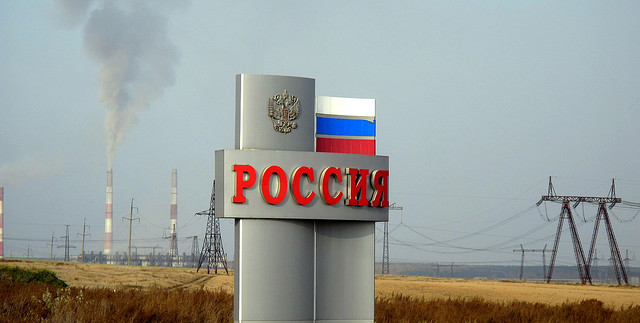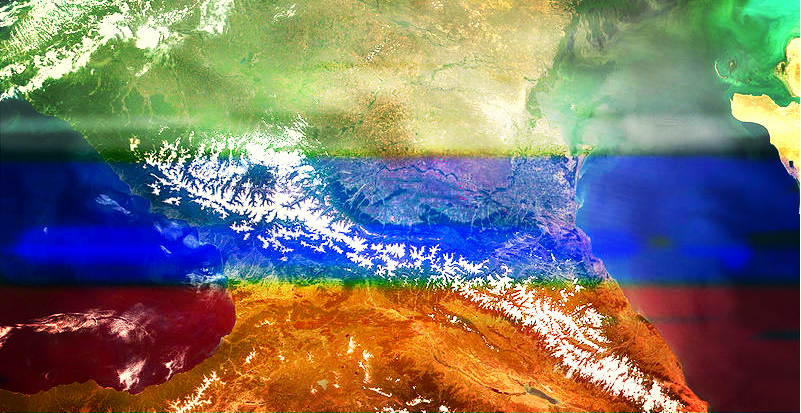Shifting Russian Policies Towards Allied Separatist Regions
By Michael Hikari Cecire (06/10/2015 issue of the CACI Analyst)
In late May 2015, Russia signaled its abandonment of the “Novorossiya” project in eastern Ukraine, which came only a few months after Moscow signed “integration treaties” with the breakaway Georgian regions of Abkhazia and South Ossetia. While the end result was not uniform in each of these cases, these recent developments point to a return to status quo ante Russian policies towards friendly separatist regimes – namely, their utility not only as local proxies, but as means of positive as well as negative leverage within their origin countries.

Moscow Steps Up Pressure on Chechnya's Powerful Ruler
By Valeriy Dzutsev (05/27/2015 issue of the CACI Analyst)
Chechnya’s ruler Ramzan Kadyrov has unexpectedly clashed with Moscow. The Russian government appears increasingly uneasy with Kadyrov’s unquestionable authority in Chechnya. At the same time, while Kadyrov will not easily yield to pressure from Moscow easily, he is evidently the weaker side in this battle. Only if Russia experiences a breakdown of power and its own strongman Vladimir Putin steps down, the Chechen leader will outlive his enemies in Moscow. Acutely aware of Russia’s projected economic downturn and its dampening effect on state capacity, Russian elites may force a regime change in Chechnya to avoid the risk of dealing with a strong regional leader at a time of decline in Moscow’s power.

Will Turkish Stream Compete With the Southern Gas Corridor?
By Natalia Konarzewska (05/13/2015 issue of the CACI Analyst)
The Turkish Stream pipeline, envisaged to transport Russian natural gas via the Black Sea to the Turkish-Greek border, is again gaining political momentum and raises interest in the region. On April 7, during a meeting in Budapest, the Foreign Ministers of Hungary, Serbia, Macedonia and Turkey expressed their countries’ interest in participating in the project and discussed possibilities of building European infrastructure for Turkish Stream. As this Russian-backed project targets the same region and is intended to supply roughly the same markets as the Southern Gas Corridor, the question arises whether Turkish Stream will eventually compete with TANAP and TAP in natural gas deliveries to Turkey and Southeast Europe.

Russia’s Regulation of Labor Migration Set to Hurt Central Asian Economies
By Nurzhan Zhambekov (04/29/2015 issue of the CACI Analyst)
The slowing Russian economy suffered a triple shock in the form of Western economic sanctions, falling oil prices, and the plummeting Russian ruble in 2014, resulting in a negative impact on Central Asian states. In addition, tighter migration regulations in Russia, in force since early 2015, are having an effect on the flow of migration from Central Asia, particularly from Kyrgyzstan, Tajikistan, and Uzbekistan. These three countries rely heavily on remittances from their migrant workers in Russia. The drop in remittances could increase socioeconomic disaffection in parts of Central Asia that are dependent on labor migrants’ earnings.

Moscow CFE Kill Threatens Caucasus Stability
By Richard Weitz (04/29/2015 issue of the CACI Analyst)
On March 10, Russia effectively ended its participation in the Treaty of Conventional Armed Forces in Europe by withdrawing from its Joint Consultative Group. This move, encouraged by the inadequate Western response to earlier Russian violations to the treaty, has given Moscow a freer hand to develop and apply its military power in Eurasia and elsewhere. In particular, the move could further increase tensions in the South Caucasus between Azerbaijan and Armenia, as well as Georgia, and Russia.








